Recommended Reading
Books
Pregnancy, Childbirth & The Newborn by Penny Simkin, PT, Janet Whalley, BSN, IBCLC, and Ann Keppler, MN
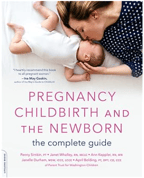

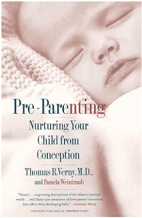

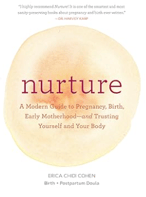

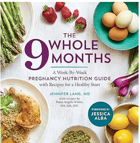

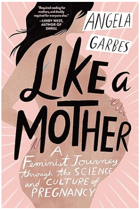



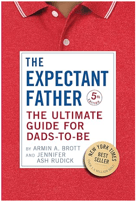



Along with the HypnoBirthing®: The Mongan Method book, the following books, articles, and websites may help you in your pregnancy and parenting journey.
Articles
How Hypnobirthing Can Help You Trust Your Body During Labor
HypnoBirthing® is a mindfulness technique that combines deep breathing, visualization, meditation, and hypnosis to help expectant mothers trust their bodies during labor. By reframing contractions as "uterine waves" or "surges," HypnoBirthing® promotes relaxation, reduces fear, and can lead to a more comfortable birthing experience.
The Power of Breathing: Benefits During Birth
Embracing focused breathing techniques during labor can significantly enhance your birthing experience by managing pain, reducing stress, and ensuring optimal oxygen flow to both you and your baby. By integrating these practices into your birth plan, you promote relaxation and facilitate a smoother, more comfortable delivery.
Six Tips for Birthing Companions
As a birthing companion, your support profoundly influences the birthing experience. To prepare, consider attending a HypnoBirthing® course with your partner, fostering a positive mindset, maintaining a calm demeanor, offering verbal affirmations, creating a serene environment, and being fully present during labor and birth.
3 Things to Know About Pregnancy Ultrasound
Ultrasound is a valuable tool during pregnancy, allowing healthcare providers to monitor your baby's development and detect any abnormalities. However, it's important to understand that ultrasounds are typically necessary only when there's a medical concern, and routine use without specific indications may not be essential.
How to Massage Your Perineum and Why It Is Important
Perineal massage, starting around the 34th week of pregnancy, involves gently stretching the perineum to enhance its flexibility, potentially reducing the risk of tearing during childbirth. This practice not only prepares the perineal tissues, but also familiarizes expectant mothers with the stretching sensations of birth, contributing to a more comfortable and confident birthing experience.
Your Rights During Pregnancy, Labor, Birth and Beyond
As an expectant mother, it's essential to understand and advocate for your rights throughout your pregnancy journey. These rights include asking unlimited questions, receiving culturally competent and respectful care, expressing your emotions without guilt, challenging mistreatment, thoroughly considering your options before deciding, choosing or changing your maternity care team, aiming for a positive birth experience, providing informed consent, and retaining the ability to change your mind at any time.
Mom Calls Out the Way People Talk About Tearing During Childbirth
In this article, TikTok creator Jordan Simone, addresses the negative language often used when discussing perineal tears during childbirth, highlighting how terms like "disgusting" and "ruined" perpetuate harmful views of women's bodies. She emphasizes the importance of reframing the vocabulary, mindfulness techniques, and showing women how their amazing bodies were created for this. These conversations acknowledge the strength and resilience involved in childbirth, advocating for a more respectful and empowering dialogue.
This Mom's Postpartum Support Checklist Is Going Viral
In a viral article, a mom shares a thoughtful checklist to help partners support new mothers during the postpartum period, including tasks like keeping her water bottle filled, washing pump parts, labeling and freezing breast milk, cooking meals, and tending to the baby so mom has time for self-care. These actions can significantly ease a new mother's recovery and transition into parenthood.
Pumping Breast Milk 101: Breastfeeding & Pumping
Pumping breast milk allows you to provide nourishment for your baby even when you're apart, helping maintain your milk supply and offering flexibility in feeding. To ensure a smooth experience, it's essential to establish a consistent pumping routine, use the appropriate equipment, and practice proper storage techniques for expressed milk.
What New Parents Should Know Before Bringing Home Baby
Welcoming your newborn involves understanding key aspects of infant care, such as feeding, diapering, and sleep patterns. Newborns typically feed every two to four hours, produce several wet and soiled diapers daily, and sleep in short intervals, waking frequently to eat. It's also important to monitor their weight, as it's normal for newborns to lose 5 to 8 percent of their birth weight initially, with most returning to their birth weight within a week or two. Additionally, caring for the umbilical cord stump by keeping it dry and exposed to air until it falls off naturally in about seven to ten days is crucial.


Websites
POSTPARTUM.NET
Post-Partum Support International
Links for local services
Assessment tools
Tolls for partners & other support people
Helpline (800)944-4773 (Call or Text)
POSTPARTUMPROGRESS.COM
Well-written blog on variety of topics relating to post-partum adjustment and mood disorders
NATIONAL MATERNAL MENTAL HEALTH HOTLINE
(833)852-6262 (USA Only)
Speak with someone immediately (English & Spanish)
NATIONAL CRISIS & SUICIDE LIFELINE (USA & CANADA)
Immediate help in a crisis @ 988
PERINATALSUPPORT.ORG (WASHINGTON STATE)
(888)404-7763 (Warm Line)
Toll-free peer support
Find Washington State support groups, providers, & resources
POSTPARTUMMEN.COM
For the 1 in 7 partners who experience some level of postpartum anxiety or depression. Find the support to get answers and get your life back on track.
Support
Empowering families through HypnoBirthing® education and support.
Contact Info
Subscribe
eleamorhb@gmail.com
(206) 601-7102
When you buy through links on our site, we may earn an affiliate commission. As an Amazon Associate, we earn from qualifying purchases. Eleamor HypnoBirthing®, © 2025. All rights reserved.
